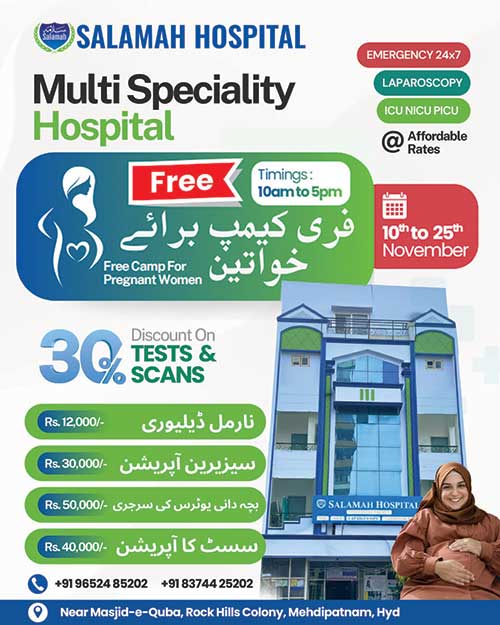Experts warn that 1 in 8 Indians are at risk of developing irreversible blindness
A collection of eye diseases known as glaucoma can harm the optic nerve, which is crucial in the transmission of visual information from the eye to the brain.

According to a health specialist who spoke here on Wednesday, which results in permanent blindness, could affect one in every eight people in India.
A collection of eye diseases known as glaucoma can harm the optic nerve, which is crucial in the transmission of visual information from the eye to the brain.
“Glaucoma usually causes silent vision loss, with some types being linked to mild eye pain, headaches, and rainbow-coloured circles around lights,” Choudhry, COO and Medical Director, HoD, Glaucoma Department at ICARE said.
“Recent statistics by National Health Portal reveal that nearly 40 million individuals, or every eighth person, in India have glaucoma or are at risk of developing it. Among individuals aged 40 and above, approximately 11.2 million suffer from glaucoma, with 1.1 million being visually impaired, including children.
Everyone is susceptible to the disease, according to Reena Choudhry, an eye doctor at ICARE Eye Hospital, who stated that glaucoma is a significant cause of irreversible blindness in India.
According to Choudhry, COO and Medical Director, HoD, Glaucoma Department at ICARE, “Glaucoma often causes silent vision loss, with some kinds being associated to slight eye pain, headaches, and rainbow-colored rings around lights.
By 2040, glaucoma is expected to impact an additional 27.8 million people in Asia, with China and India bearing the most of the burden, according to her.
While glaucoma can affect anyone at any age, it primarily affects those over the age of 40. High levels of nearsightedness, diabetes, a history of ocular trauma, a family history of glaucoma, or long-term use of corticosteroid medications all increase a person’s risk of getting the disease.
Glaucoma can be prevented from progressing if diagnosed early, and regular eye exams and population screenings can help with early detection and prevention. In order to stop further eyesight and visual field deterioration after a late-stage illness diagnosis, medicines and surgery are used. Said Choudhry.

